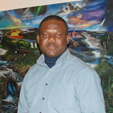Yeetey Enuameh

Dept. of Community Health & Prevention DrPH, 2011
Christine Mirzayan Science & Technology Policy Graduate Fellowship Program
This fellowship brings together graduate students and post-graduates to the National Academies of Science (NAS) for a 12 week fellowship that provides a deeper insight into science and technology policy making processes of the organization. In the fall of 2009, I was part of a team of fellows of diverse specialties who were privileged to be at the NAS and be part of its policy making environment. Over the period of the fellowship, I was attached to 2 mentors at the Board on Children, Youth and Families (BCYF) under the Institute of Medicine (IOM). Fellows generally work on projects of their mentors that span literature searches, identifying relevant policy issues, writing of policy briefs, putting together study committees, helping with report writing and many more. There were opportunities to attend congressional meetings, functions of interest at several locations around Washington, DC and its environs as well as lots of social gatherings. Meeting fellows from other disciplines was exciting as we could learn and discuss policy issues from diverse perspectives. One thing I will never forget about the atmosphere at the NAS was that, it does expose fellows to experts who have accomplished so much in their fields of endeavor… who are so down to earth and willing to share their knowledge and experience with up and coming scientists. The whole experience was great and has greatly enhanced my understanding of the policy making process at the highest level. I also established new relationships that will be with me for a long time to come.
For more information on the fellowship check the website: http://sites.nationalacademies.org/PGA/policyfellows/index.htm
Population Reference Bureau (PRB) Population Policy Communication Fellowship
This fellowship is in line with PRB’s policy of bridging the gap between the research and policy environments by empowering researchers to be capable of communicating their works to policy makers and the general public. The fellowship is in 2 parts: a 2 week workshop in Washington, DC; and later the preparation of policy briefs and presentations. The workshop in Washington, DC between June 7 and 18, 2010 was intense, but very rewarding. We were taken through courses that I would say “de-schooled me of my academic language and molded me into someone who speaking the average man’s language”. The workshop helped me better appreciate the importance of communicating my academic research work and in the long run made it easier for me to describe it to the understanding of my colleagues. One lesson however from this workshop was that, acquiring the habit of communicating to others does not come off as a “one-time” activity, but something one needs to constantly work on. I am looking forward to the policy writing sessions that will culminate in us making policy presentations at a workshop preceding the Population Association of America (PAA) annual meeting in March, 2011.
For more information on the fellowship check the website: http://www.prb.org/EventsTraining/InternationalTraining/PolicyFellows.aspx
Compton Foundation/PRB International Fellowship
The Compton Foundation International Dissertation Fellowship is a program that brings together graduate students with interests in Population, Environment and Peace from sub-Saharan Africa and Latin America. Aside providing funding towards our dissertation, the Compton Foundation organized a weekend retreat at Camp Miniwanca in Shelby, MI to get fellows to know each other and share our research interests. Fellows were taken through workshops in conflict resolution, fund raising and policy communication. Though a brief retreat, a lot was learnt in that very short time that will surely stay with me for a long time to come.
For more information on the fellowship check the website:
http://www.prb.org/EventsTraining/InternationalTraining/ComptonFellows.aspx
I am currently preparing to begin data collection towards my dissertation in my home country, Ghana. My dissertation will evaluate a World Health Organization (WHO) designed health intervention aimed at improving health care delivery to adolescents.
Desiderata
I am grateful to the faculty and staff at the Dept of Community Health & Prevention for their support over the years and to Prof. Lisa Bowleg for her immense contributions. I will like to finally acknowledge my advisor, Prof. Lisa Ulmer whose incredible support, advice and encouragement greatly contributed to my successes thus far.